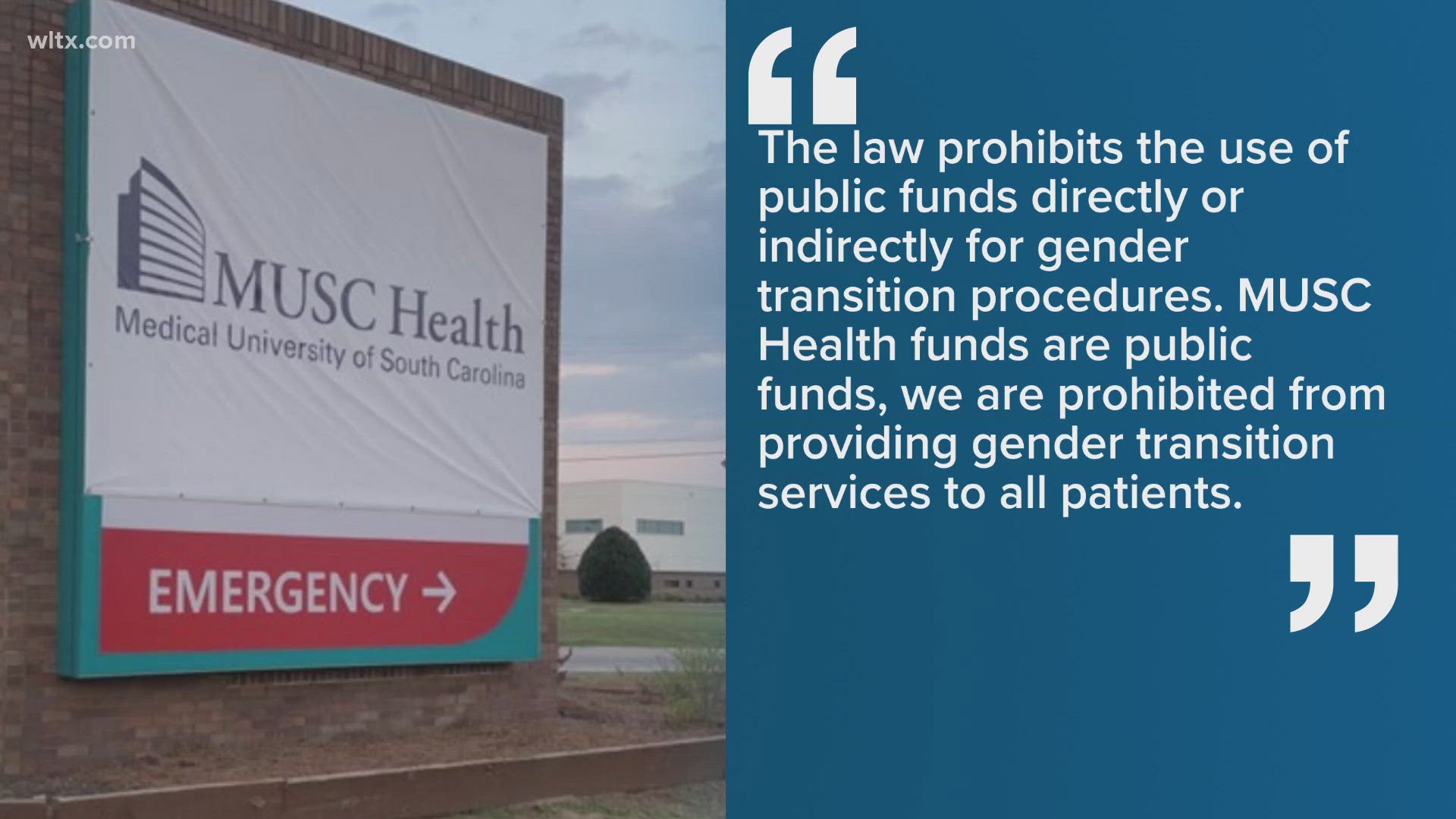COLUMBIA, S.C. — Patients who go to any affiliate of MUSC Health for gender-affirming care will no longer be able to receive it due to a part of a law passed in May that primarily targets preventing these procedures for minors.
MUSC has pointed to one sentence in the bill that says public funds can't be used "directly or indirectly for gender transition procedures," as the reason they can no longer offer these procedures to anyone, including those over 18.
MUSC said in a statement to News19:
"The law prohibits the use of public funds directly or indirectly for gender transition procedures. MUSC Health funds are public funds, we are prohibited from providing gender transition services to all patients.”
MUSC strives to preserve and optimize human life in South Carolina and beyond. While MUSC Health can no longer offer this specific service, we provide a vast array of other complex care, primary and behavioral health services that are accessible to all patients, including transgender patients."
But that wasn't the intention of lawmakers when adding to the language, said bill sponsor Rep. David Hiott.
"Our bill dealt with the minors only," said Hiott. "But I applaud MUSC for going the next step and saying they are not gonna do any of those procedures for any individual in South Carolina."
MUSC is a public hospital that gets a portion of its funding from the state. In the 2022-2023 fiscal year, MUSC got $176 million in state appropriations, according to their Annual Comprehensive Financial Report.
According to Chase Glenn, director of the Alliance for Full Acceptance, finding providers for this type of care can be difficult to begin with, and having to go elsewhere can be especially difficult.
"For a lot of us, we've made the decision to not go and see providers out of fear," Glenn said. "When you connect with a provider who you know is supportive and who is providing you this truly life-saving care where we can get the hormones that we need and get access to surgery or whatever else we need as trans folks, it's really scary to think about having to start that whole process all over again."
He said he believes the language was made intentionally vague to complicate this care for transgender people.
"The hospitals like MUSC and the health care providers that are having to make this difficult decision to cut off care to all trans people are doing this because of the position that our lawmakers have put them in," says Glenn. "Our state legislature has overstepped and has passed a law that is taking away the healthcare rights of South Carolina citizens."
This won't affect private hospitals like Prisma that offer these services. But anyone who provides gender-affirming care and receives state grants could choose to stop providing care if they consider themselves part of this interpretation of the language.
Glenn says that those who are seeking a new provider can contact the Campaign for Southern Equality for help finding one.

